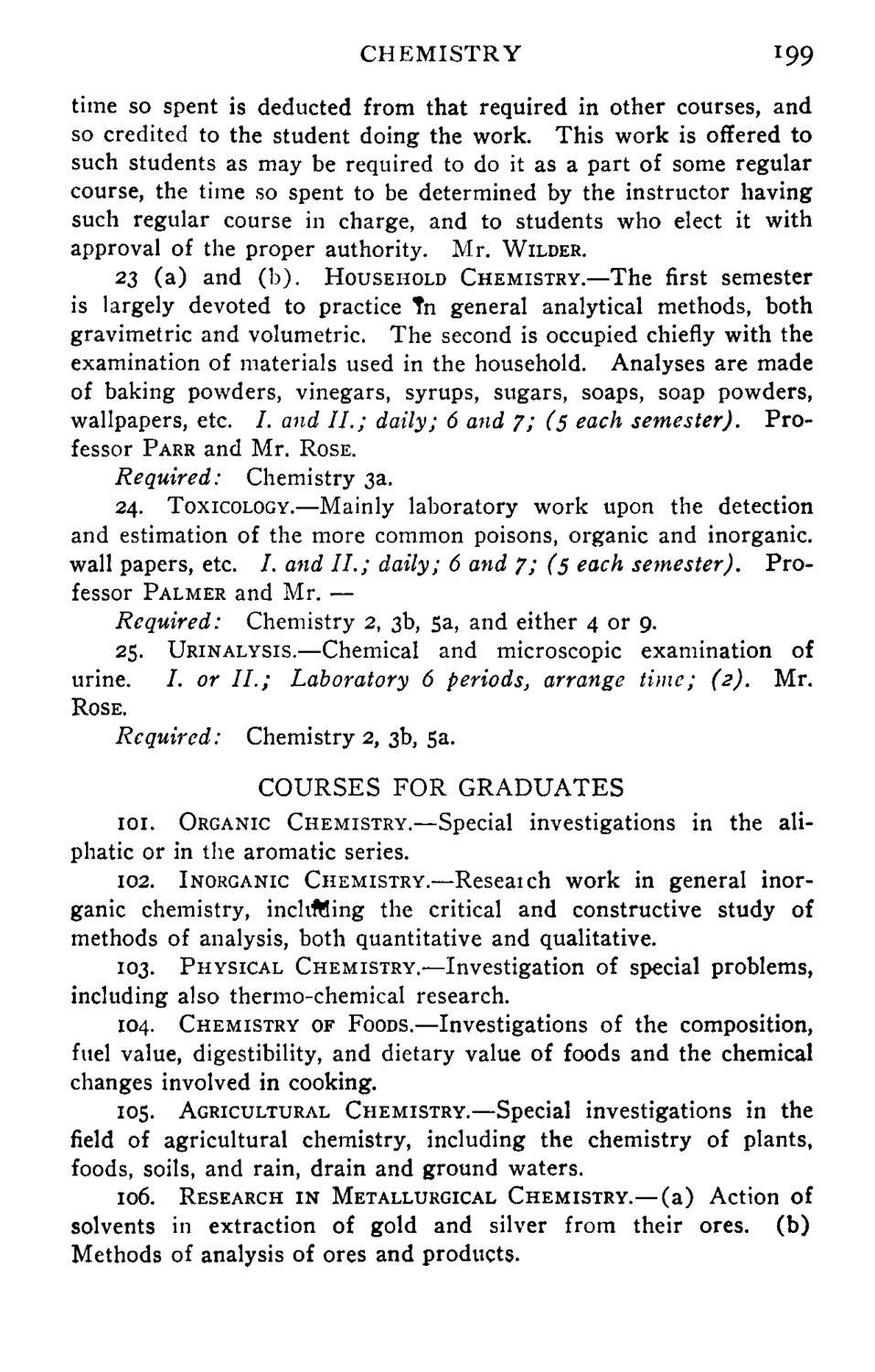| |
| |
Caption: Course Catalog - 1899-1900
This is a reduced-resolution page image for fast online browsing.

EXTRACTED TEXT FROM PAGE:
CHEMISTRY 199 time so spent is deducted from that required in other courses, and so credited to the student doing the work. This work is offered to such students as may be required to do it as a part of some regular course, the time so spent to be determined by the instructor having such regular course in charge, and to students who elect it with approval of the proper authority. Mr. WILDER. 23 (a) and (b). HOUSEHOLD CHEMISTRY.—The first semester is largely devoted to practice Tn general analytical methods, both gravimetric and volumetric. The second is occupied chiefly with the examination of materials used in the household. Analyses are made of baking powders, vinegars, syrups, sugars, soaps, soap powders, wallpapers, etc. /. and II.; daily; 6 and 7; (5 each semester). Professor PARR and Mr. ROSE. Required: Chemistry 3a. 24. TOXICOLOGY.—Mainly laboratory work upon the detection and estimation of the more common poisons, organic and inorganic, wall papers, etc. /. and II.; daily; 6 and 7; (5 each semester). Professor PALMER and Mr. — Required: urine. ROSE. Required: Chemistry 2, 3b, 5a, and either 4 or 9. 25. URINALYSIS.—Chemical and microscopic examination of /. or II.; Laboratory 6 periods, arrange time; (2). Mr. Chemistry 2, 3b, 5a. COURSES FOR GRADUATES 101. ORGANIC CHEMISTRY.—Special investigations in the aliphatic or in the aromatic series. 102. INORGANIC CHEMISTRY.—Reseaich work in general inorganic chemistry, inclvMing the critical and constructive study of methods of analysis, both quantitative and qualitative. 103. PHYSICAL CHEMISTRY.—Investigation of special problems, including also thermo-chemical research. 104. CHEMISTRY OF FOODS.—Investigations of the composition, fuel value, digestibility, and dietary value of foods and the chemical changes involved in cooking. 105. AGRICULTURAL CHEMISTRY.—Special investigations in the field of agricultural chemistry, including the chemistry of plants, foods, soils, and rain, drain and ground waters. 106. RESEARCH I N METALLURGICAL CHEMISTRY.— (a) Action of solvents in extraction of gold and silver from their ores, (b) Methods of analysis of ores and products.
| |